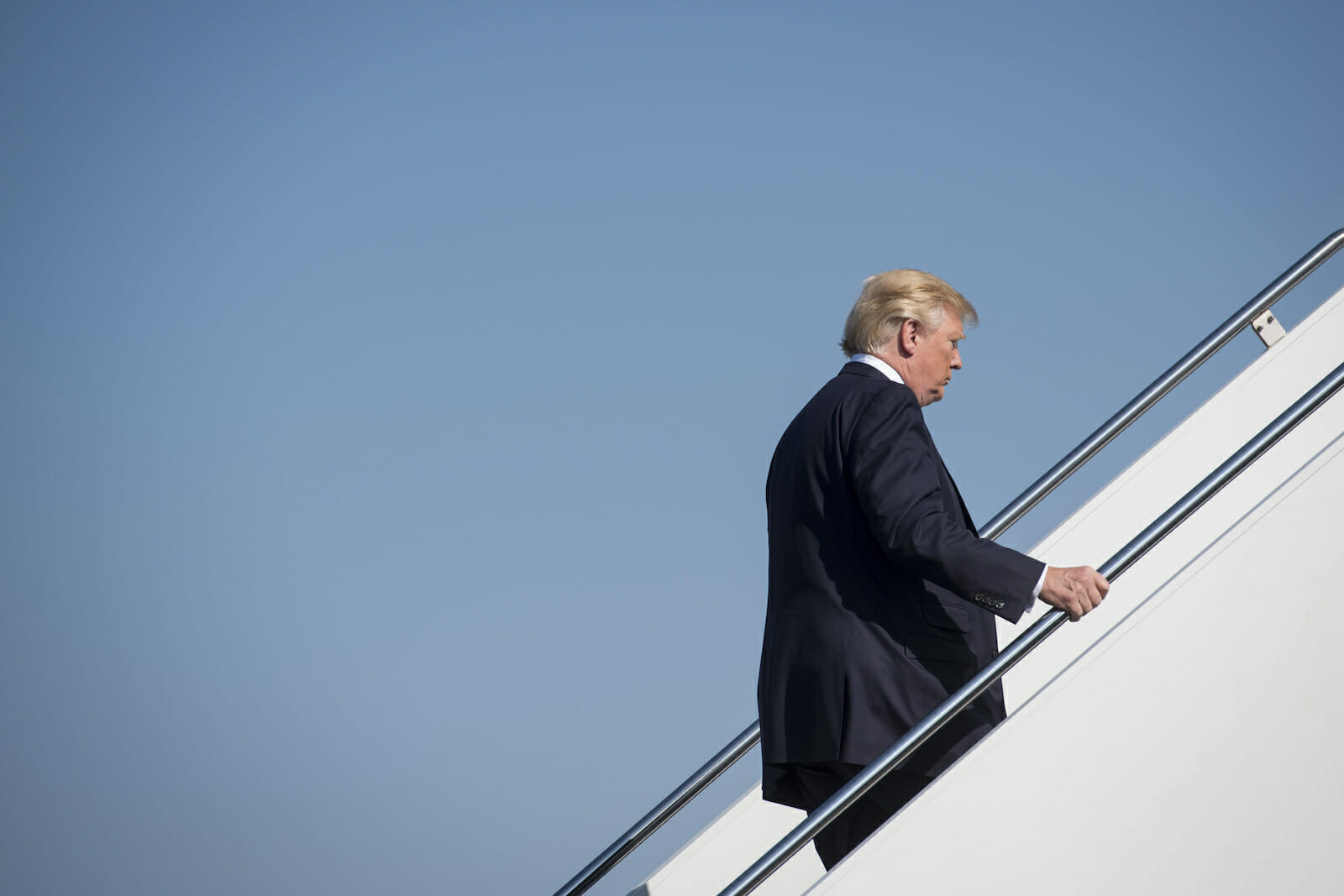
Politics
Dealmaker in Chief
During his campaign, Donald Trump’s main message was that the United States is ripped off by foreign countries and it would need a tough dealmaker like him to make America great again. During the two years of his presidency, Trump has engaged in numerous international negotiations and broken several times with common conventions. The withdrawal from TPP and the Paris agreement on climate change, the renegotiations of NAFTA, the imposition of tariffs on steel and aluminum, the sanctions against Iran and the personal talks with North Korean leader Kim Jung-Un over denuclearization are a few examples of Trump’s negotiation approach. While it is too early to assess the successes or failures of Trump’s bargaining approach because many negotiations are still going on, enough time has passed to take a closer look at the characteristics of his negotiation approach and to point out the advantages and disadvantages. Here are seven takeaways:
1. It is either winning or losing. Trump sees almost any negotiation as a zero-sum game, in which the gains of one side are the losses of the other side; so either you are a winner or a loser. In foreign trade, countries with trade surpluses such as China, Germany and Mexico “rip off” the United States. In security affairs, NATO allies treat the United States “very unfairly” and should contribute more to their defense spending. The Paris agreement “disadvantages the United States to the exclusive benefit of other countries.” Without denying that criticism might be justified in some cases, win-win situations just do not exist in Trump’s world view.
2. It is all about money. It is almost always about money and never about values and norms. Maximizing money is the end. Even power is just a tool and no end. Trump measures all relations solely in monetary terms by using simple indicators such as trade balances or defense expenditures. He does not take into account that costs and benefits are not necessarily measurable in monetary terms and that short-term losses can be investments which could be in the strategic interest of the United States in the long run. For example, Trump measures the benefits of NATO only in terms of defense spending by the individual member states. Geopolitical advantages for national security are just not considered in the cost-benefit calculation.
3. Threats first, thinking second. Threats seem to be more like a daily routine for Trump rather than an exception; true to the maxim “Use your leverage” from his book, The Art of the Deal. Trump threatened to withdraw from NAFTA, the WTO, NATO, the Paris agreement, the INF treaty and the deal with Iran, to impose tariffs worth billions of dollars against China and other countries, and to shut down the government for years if Congress does not provide funding for a border wall. And the list goes on and on. For Trump it is all about hard power in negotiations. Hard power is the ability to get others to do something they otherwise would not have done by using threats or rewards. By relying primarily on threats, Trump neglects the potential damage of this aggressive bargaining approach on the soft power of the United States. Soft power is the ability to persuade others to aspire to the outcomes you want by attraction due to one’s ideas, values or culture.
4. Risky behavior is worth it. Trump proved to be risk-seeking by implementing some of his most extreme threats. The withdrawal from the Iran deal and the Paris agreement, the imposition of huge tariffs on steel and aluminum against several countries and the huge tariffs against China for violating intellectual property rights, as well as the government shutdown to get funding from Congress for a border wall confirm that Trump is willing to take high risks. In The Art of the Deal he already highlights this attitude: “But when people treat me badly or unfairly or try to take advantage of me, my general attitude, all my life, has been to fight back. The risk is that you make a bad situation worse…But my experience is that if you’re fighting for something you believe in…things usually work out for the best in the end.” The thinking in terms of zero-sum games can be seen as the root of Trump’s risk-seeking behavior. As the prospect theory argues, people tend to be risk-averse in the domain of gains and risk-seeking in the domain of losses.
5. Pretend to be the toughest guy in town. Trump seemed to be all talk but no action in the beginning. Yet, the imposition of several threats as mentioned above proves his willingness to follow up on his words with deeds. Thereby, Trump strengthened his reputation for being a resolved negotiator; true to his motto from the The Art of the Deal: “The worst thing you can possibly do in a deal is seem desperate to make it. That makes the other guy smell blood, and then you’re dead.” And for sure the credibility of threats depends on a negotiator’s reputation for resolve. While backing down causes a loss of reputation, staying firm increases the credibility of future threats and thereby creates greater leverage in future negotiations.
While Trump’s threats seem to have had a distributional effect in favor of the United States in some cases (e.g. the trade talks with Mexico, Canada and South Korea) and appear to have pressured China to negotiate seriously about unfair trade practices (although the results have yet to be determined), such a practice does not automatically create greater leverage. Because the other side also has a reputation for resolve, he or she will not give in easily to threats even if they are seen as credible as the battle over the government shutdown and border wall proves. If Democrats would have given in to Trump’s demand for a border wall to end the government shutdown, they would have signaled yielding that Trump would have exploited in future negotiations. Instead of greater leverage, threats often just increase the risk of a negotiation failure because both sides are less likely to give in to avoid a reputational loss.
6. Nothing else counts but being tough. Trump’s threats hurt his own reputation and that of the United States as a reliable partner. Trump misses that, in politics, an agreement is usually not a short-term deal as often is the case in the real estate business, but aims at a long-term partnership that is based on trust. By constantly questioning existing agreements, Trump signals that the United States is no longer a reliable partner that is willing to comply with signed agreements. While Trump’s confrontational negotiating style can still result in new agreements such as the signing of the renegotiated trade agreement with Canada and Mexico proves, it makes it much more difficult to achieve successful results in conflicting negotiations where trust is a major problem as in the cases with Iran and North Korea over ending their nuclear and missile programs.
7. Seek the spotlight. Trump loves to make threats live in front of cameras or via Twitter. Therefore, negotiated issues receive more public attention which in turn is more likely to shrink the bargaining space for a deal. According to the audience costs theory, the domestic audience punishes its political leadership (e.g., at the ballot box) for backing down. Hence, public threats generate costs that political leadership would suffer for backing down from its own threats. In addition to potential losses of reputation for resolve, the public may also tie the hands of the political leadership. As a result, threats gain additional credibility, but at the same time also increase the risk of conflict and negotiation failure.
The seven takeaways make clear that Trump transferred his simple understanding of negotiations he is used to in the real estate business to negotiate complex issues in domestic and international politics. For Trump, negotiations are always zero-sum games in which threats and pretending to be a tough negotiator result in a profitable deal. Soft power, a reputation as a reliable partner and trust are most often irrelevant. While such a confrontational approach may increase the credibility of threats and even lead to greater leverage in some circumstances, it also ties hands, intensifies conflicts and increases the risk of negotiation failures. Furthermore, this approach does not build long-term, reliable cooperation based on trust.

